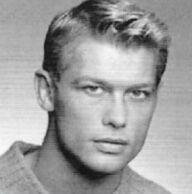The Career and Contributions of John Partridge

Introduction
John Partridge, a prominent figure in British entertainment, encompasses a unique blend of talents ranging from acting to singing and presenting. Born on July 24, 1971, in Walthamstow, London, Partridge first gained widespread recognition for his role in the long-running BBC soap opera, EastEnders. His career has since spanned various platforms, reflecting trends in the entertainment industry and showcasing his dedication to the performing arts.
Rise to Fame
Partridge’s initial break came in the late 1990s when he was cast as Christian Clarke in EastEnders, a character that quickly resonated with audiences. His portrayal of a gay character during a time when such narratives were becoming more prominent was significant for LGBTQ+ representation in mainstream television. His performance earned him multiple nominations and awards, solidifying his status in the industry.
Diverse Talents and Projects
After his success on EastEnders, Partridge expanded his career into theatre and live performances. He appeared in various productions including Cabaret and Chicago, showcasing his vocal talents and depth as a performer. Additionally, he has participated in several reality TV shows, most notably Celebrity Big Brother and Dancing on Ice, further enhancing his visibility among the public.
Partridge has also taken on roles as a presenter, demonstrating his versatility. He has hosted several shows focusing on lifestyle and entertainment, where he brings his charismatic style to engage audiences. His contributions to the television landscape have made him a beloved personality across different demographics.
Current Developments
As of late 2023, John Partridge continues to be active in the entertainment scene, regularly participating in both staged performances and television appearances. His commitment to supporting LGBTQ+ causes remains paramount, positioning him as a role model for many young individuals. Furthermore, he engages with fans through social media, providing insights into his personal life and ongoing projects, which helps to maintain a robust connection with his audience.
Conclusion
John Partridge’s multifaceted talents and his commitment to representation in the arts place him as a significant figure in British entertainment. His work continues to evolve, with expectations for further contributions to both television and theatre in the future. For readers looking to stay updated on a versatile career that bridges various forms of entertainment, Partridge’s journey offers a remarkable insight into the dynamic nature of the industry.
